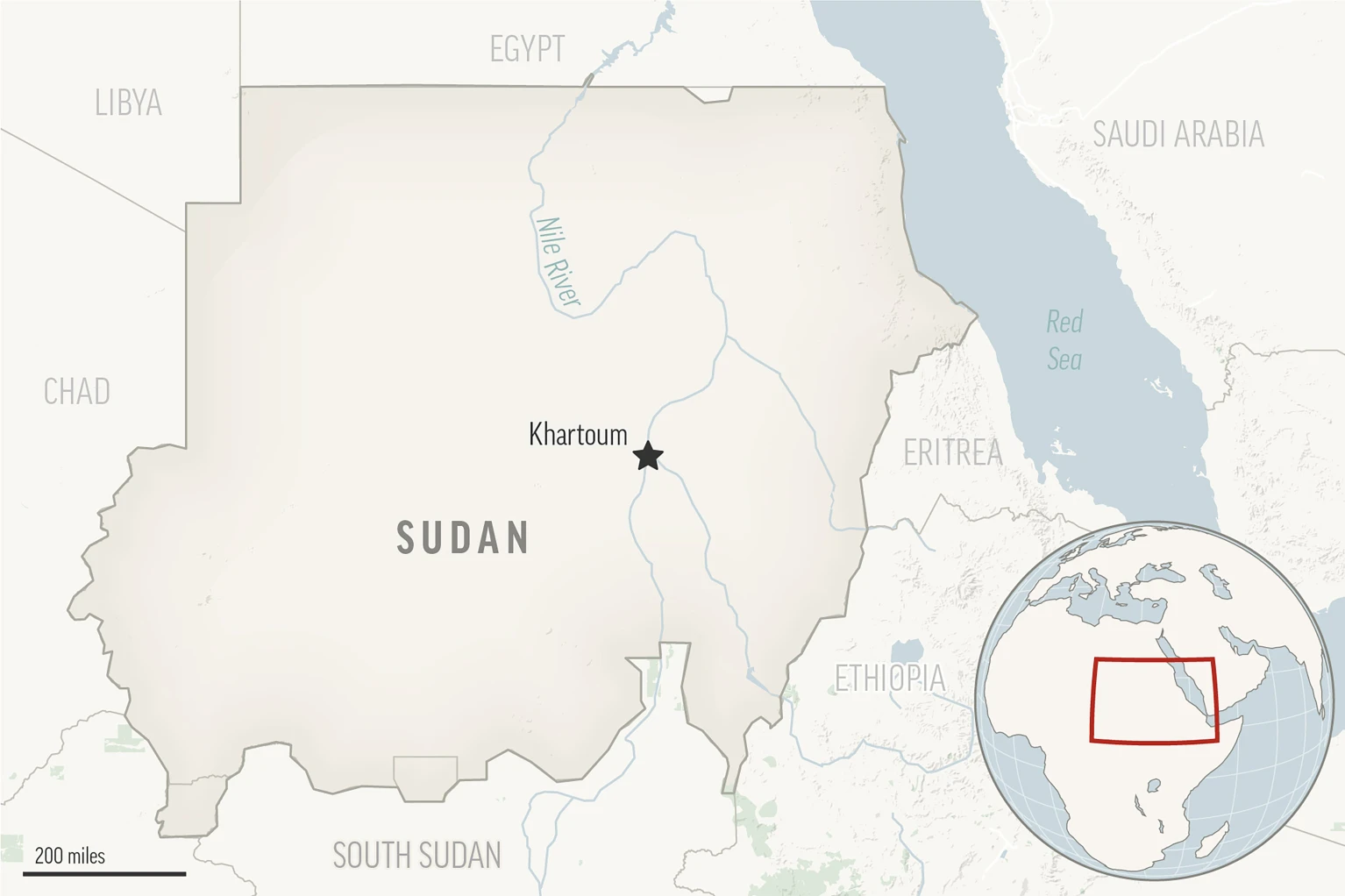
The US warns that famine in Sudan is on track to become the deadliest in decades, even as global attention shifts elsewhere.
On August 4, 2024 by editor1 StandardWASHINGTON (AP) — The famine now confirmed in one of the large camps for war-displaced people in Sudan’s Darfur region is rapidly worsening as combatants block aid, raising concerns that it could surpass the severity of the last major famine, which occurred 13 years ago. U.S. officials issued this warning on Friday.
The U.S. Agency for International Development (USAID), the U.N. World Food Program (WFP), and other humanitarian organizations are urgently calling for a cease-fire and unhindered access for aid throughout Sudan. This follows the formal confirmation from the Famine Review Committee, which declared Thursday that starvation in at least one of the three massive makeshift camps—housing up to 600,000 people displaced by Sudan’s ongoing conflict—has escalated to a full-scale famine.

Two U.S. officials briefed reporters on the crisis analysis, with the famine being only the third such declaration in the committee’s 20-year history. The officials spoke on the condition of anonymity due to briefing protocols.
The last major famine, in Somalia in 2011, was estimated to have caused the deaths of around 250,000 people, with half being children under five.
The blockade of food and other aid by Sudan’s warring factions has heightened fears within the humanitarian community, according to one U.S. official.
The conflict in Sudan began in April 2023 when two rival generals, each backed by international supporters, clashed over control of the capital. The Rapid Support Forces (RSF), which evolved from the Janjaweed militias known for their brutal attacks in Darfur, are one of the factions involved.
While global focus has largely been on conflicts in Ukraine, Gaza, and the broader Middle East, the Sudanese war has developed into one of the world’s largest humanitarian crises. The U.N. reported last month that 10.7 million people have been displaced by the conflict, with widespread acute hunger affecting much of the country.
There are allegations that the United Arab Emirates is supporting the RSF, though the UAE denies this. Egypt and Saudi Arabia are reported to be backing the government-aligned forces.
Humanitarian aid workers last reached the camps in Darfur in April. The RSF has been accused of besieging the area and attacking civilian sites, including hospitals and camps.
World Food Program director Cindy McCain has called on the international community to push for a cease-fire, stating that it is essential to prevent a worsening humanitarian disaster.
USAID Director Samantha Power highlighted that the famine is a result of deliberate actions by both sides of the conflict, supported by external patrons who are using starvation as a weapon of war.
U.S. officials noted that the U.S. is the largest source of aid for Sudan, though logistical challenges prevent direct military interventions like air drops, which have been used in other crisis situations.
The United States and Saudi Arabia have invited both sides to cease-fire talks in Switzerland in August. The RSF has expressed its intention to attend, while the Sudanese government has indicated that it would not agree to negotiations before implementing the Jeddah Declaration, which aimed to end the conflict but has not been adhered to by either side.
Famine declarations are based on strict criteria and are typically made by the affected countries or the United Nations, with political considerations often delaying such announcements.
Khaled reported from Cairo.
You may also like
Archives
Calendar
| M | T | W | T | F | S | S |
|---|---|---|---|---|---|---|
| 1 | ||||||
| 2 | 3 | 4 | 5 | 6 | 7 | 8 |
| 9 | 10 | 11 | 12 | 13 | 14 | 15 |
| 16 | 17 | 18 | 19 | 20 | 21 | 22 |
| 23 | 24 | 25 | 26 | 27 | 28 | 29 |
| 30 | ||||||
Leave a Reply